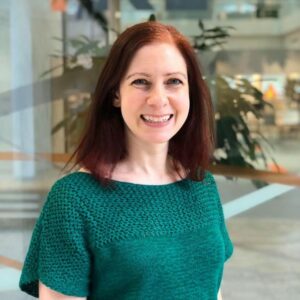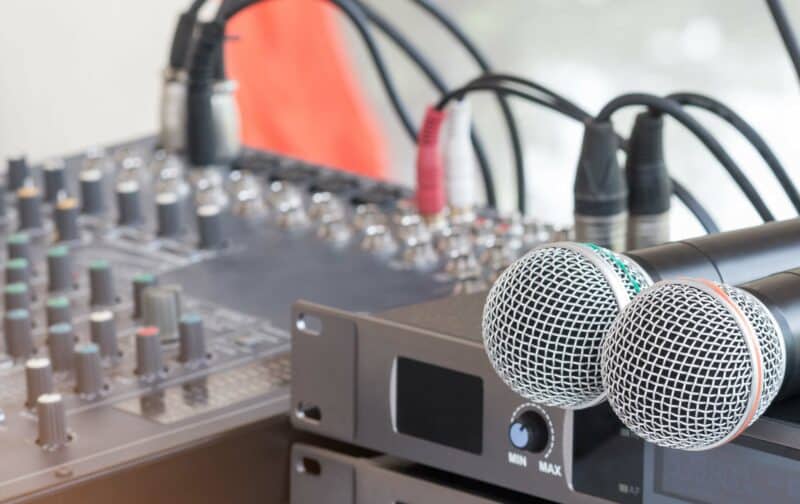
Role: Social and Market Research Director
Career Area: Research, Modelling and Analysis
Location: Woking
My role at SYSTRA
As a Director in the social and market research team, my typical week involves leading a few different projects, using a range of qualitative and quantitative research methodologies, to answer clients’ research questions. I also write proposals to help us win more work.
I also write proposals to help us win more work.
My career journey
Following on from a geography degree, I started as a graduate trainee at a global research agency 24 years ago, and aside from a brief stint on the client-side at UNICEF, I’ve worked in research consultancy ever since. I’m a Certified MRS member and a member of the UK Evaluation Society. I was also a Senior Manager at TRL (Transport Research Laboratory) for a few years, leading a large team of researchers and consultants, where I completed a management diploma and became a Lean Green Belt practitioner in process improvement.
Joining SYSTRA in January 2024 marked my return to hands on research.
We asked Sally…
When did you realise this was the career path for you?
Very soon into my graduate training programme. At that point I didn’t have a clear vision of my future and how I would develop as a researcher, but I realised pretty quickly this was a profession that suited my skills and capabilities, where I got to do a range of different activities, and it was something I loved doing.
Have you got any words of wisdom for someone starting out in a similar role?
Like most professions, when you first start out it’s worth being willing to work on anything and do whatever tasks are needed, to gain the experience and work out what kind of researcher you’d like to be. Beyond that, research is a profession that welcomes all sorts of different traits and skills, and you can develop in very different ways – from deep expertise in particular methodologies or subject areas; or like me, being a bit of an all-rounder without claiming to be expert in any one thing.
Different organisations have different cultures, and will be doing different types of research, so the opportunities will vary depending on where you’re working. I feel the best researchers love what they do (and accept the occasional more challenging projects!), so if you’re not feeling that way, it could be you’re not in the right place for you.
How does SYSTRA stand out from the rest as a great place to work?
I feel lucky to have joined such a lovely team and to have such a great line manager. I felt welcomed and valued from the moment I joined, and feel very comfortable being able to work in the way that suits me, making my own contribution as part of a supportive team.
With such power in diversity, what unique perspective do you bring to the table?
I have an unusually diverse research skill set, having worked in market and social research, and used such a broad range of qualitative and quantitative methodologies. However, as for everyone everywhere, the unique perspective I bring is that I am the only me. Everything I say and do is as a result of everything I am and have experienced, and for good or bad, there is literally no one else in the world who matches that. One thing I love about SYSTRA is we don’t homogenise people into defined groups – we have a broad understanding of diversity being about everyone being able to be who they are.
Where is the place that has inspired you the most?
I’d probably say Enfield, as the place where I grew up and spent my formative years. To repeat the for good and bad, acknowledgement, it’s growing up in Enfield that has made me who I am today.
What does true sustainability really mean to you?
If this question was just asking what sustainability was, I’d say it was changing the way we use resources in a way that doesn’t cause harm and will rebalance or renew.
But considering what true sustainability really means to me, gives me the opportunity to be more creative and imagine an unachievable utopia where humans’ population growth and technological developments evolve in a way that is in perfect balance with nature, rather than creating all this damage.
What would a green future look like?
We can and should be changing our behaviour to make all those small (and big) changes wherever possible. But, given where the world is, I think a green future needs technological breakthroughs to find new ways of countering the damage we’re doing, and have done, to our environment to achieve balance.
How do you look after your wellbeing outside of work?
Being physically active, having fun with my daughters, laughing at my husband, my husband laughing at me, reading, playing piano (with exceptional mediocrity), singing in a choir (with exceptional mediocrity), eating healthily and accepting that I am who I am.
If you could spend your lunchbreak with someone you really admire, who would you choose?
Greg Jenner. He’s an endearing and engaging historian, who was a consultant for the Horrible Histories TV series, and hosts a podcast I love called You’re Dead to Me. Greg makes history fun and accessible, and manages to convey the excitement I feel when reading a book about the Wars of the Roses, much better than I ever could (why do people call me boring?!). We’d have great fun discussing British regicides during a lovely walk in the park.
If you had to pick, which mode of transport would you use for the rest of your life?
My own two feet.


 Australia
Australia  Brazil
Brazil  Canada
Canada  Chile
Chile  China
China  Columbia
Columbia  Denmark
Denmark  Egypt
Egypt  France
France  India
India  Indonesia
Indonesia  Ireland
Ireland  Italy
Italy  Malaysia
Malaysia  New Zealand
New Zealand  Norway
Norway  Panama
Panama  Peru
Peru  Poland
Poland  Portugal
Portugal  Saudi Arabia
Saudi Arabia  Singapore
Singapore  South Korea
South Korea  Spain
Spain  Sweden
Sweden  Taiwan
Taiwan  Thailand
Thailand  Türkiye
Türkiye  United States
United States  Vietnam
Vietnam